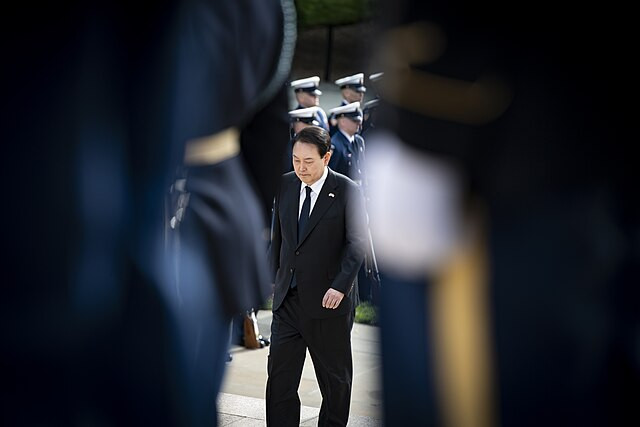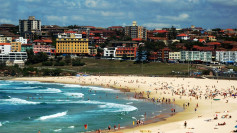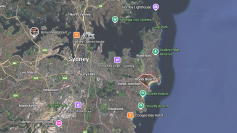South Korea's President Yoon Suk Yeol is facing his second impeachment vote in a week, following widespread public and political backlash over his controversial martial law declaration earlier this month. The National Assembly is set to vote on Saturday to decide whether Yoon's actions warrant his removal, a decision that could significantly reshape South Korea's political landscape.
The impeachment motion requires a two-thirds majority, or 200 votes, to pass in the 300-seat legislature. With opposition lawmakers controlling 192 seats, they need at least eight members of Yoon's conservative People Power Party (PPP) to cross the aisle. As of Friday, seven PPP legislators had pledged their support for impeachment, leaving the outcome uncertain.
The impeachment push follows Yoon's declaration of martial law on December 3, which sent soldiers and helicopters to Parliament in an apparent effort to suppress opposition. The move provoked swift condemnation, with lawmakers quickly convening to nullify the declaration. Public anger has since surged, with thousands of citizens rallying in Seoul to demand Yoon's resignation.
Protesters represent a cross-section of South Korean society, from retirees and workers to K-pop fans. Teacher Kim Hwan-ii said, "I'm so angry that we all have to pay the price for electing this president," while factory worker Kim Sung-tae added, "Impeachment is a must; we must fight relentlessly."
If the impeachment motion passes, Yoon would be suspended from office while the Constitutional Court deliberates. Prime Minister Han Duck-soo would serve as acting president during the review, which could take up to 180 days. The court's decision could remove Yoon from office, making him the second South Korean president to face such a fate. However, with only six of nine justices currently seated on the bench, a unanimous vote would be required to uphold the motion.
Yoon remains defiant. In a televised address on Thursday, he rejected calls for resignation, stating, "Whether they impeach me or investigate me, I will stand firm." He framed the martial law declaration as a constitutional response to what he described as a severe political crisis instigated by the opposition-controlled legislature.
Opposition leader Lee Jae-myung has urged PPP lawmakers to side with the people "wailing out in the freezing streets." A recent Gallup Korea poll indicates that 75% of respondents support impeachment, while Yoon's approval rating has plummeted to 11%.
Legal analysts suggest that even if the impeachment fails, Yoon could still face criminal charges. While sitting presidents in South Korea are immune from most criminal prosecutions, this protection does not extend to charges of insurrection. Prosecutors have already arrested several senior officials, including the military commander responsible for defending Seoul, and have issued warrants for the national and city police chiefs.
The impeachment process mirrors previous instances in South Korean history. Former President Roh Moo-hyun faced impeachment in 2004, though the Constitutional Court later reinstated him. In 2017, President Park Geun-hye was impeached and removed from office following a corruption scandal. Both cases illustrate the high stakes and complex legal maneuvering involved in removing a sitting president.
If the impeachment proceeds and is upheld, South Korea would hold a new presidential election within 60 days. If it fails, Yoon would likely attempt to consolidate his authority, though his presidency would remain marred by controversy.
Analysts say the fallout from Yoon's martial law declaration and the impeachment vote could have long-term implications for South Korea's democratic institutions. "This is clearly an act of insurrection," said Kim Hyun-jung, a researcher at the Korea University Institute of Law. "Even if the impeachment motion does not pass, the president's legal responsibilities under the criminal code cannot be avoided."






